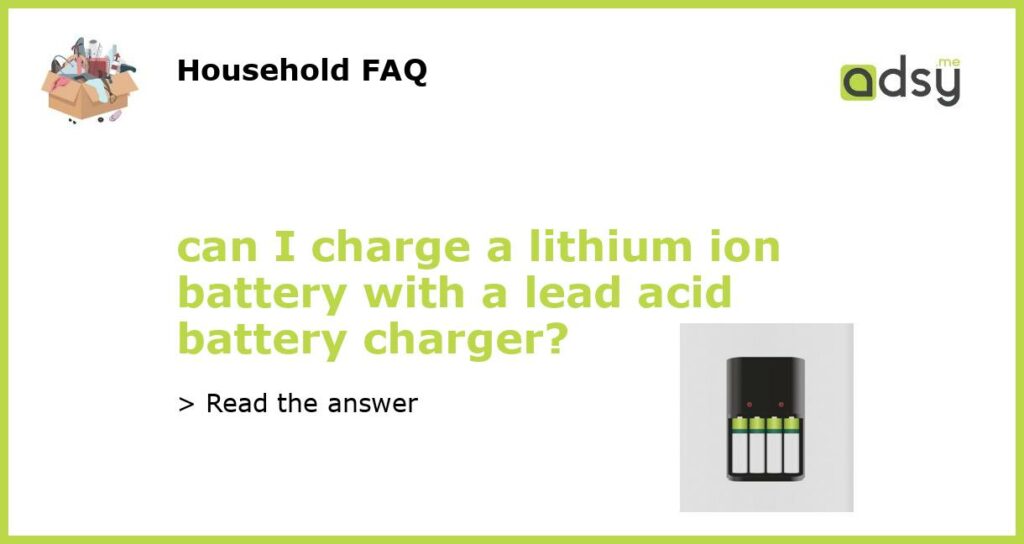Understanding Lithium Ion and Lead Acid Batteries
Before answering the question, it is important to understand the basic differences between lithium ion and lead acid batteries. Lithium ion batteries are widely used in portable electronic devices due to their high energy density, low self-discharge rate, and lightweight construction. On the other hand, lead acid batteries are known for their durability, reliability, and cost-effectiveness, which makes them an ideal choice for automotive and industrial applications.
Compatibility Issues between Lithium Ion and Lead Acid Battery Chargers
One of the most common misconceptions is that a lead acid battery charger can be used to charge a lithium ion battery. However, it’s not recommended to do so as the charging circuitry for both types of batteries is very different. While lead acid batteries require a constant voltage charging process, lithium ion batteries require a constant current and constant voltage charging process. Therefore, using a lead acid charger for a lithium ion battery may cause overcharging, which may lead to battery damage or even a risk of explosion.
Charging a Lithium Ion Battery with a Dedicated Charger
A safer and more recommended approach is to use a dedicated lithium ion battery charger, which is designed to meet the specific requirements of the battery chemistry. Lithium ion battery chargers are widely available in the market and come in various forms, including wall-mounted and portable chargers. It’s essential to choose the right charger that matches the battery’s voltage and capacity to ensure optimal performance and lifespan.
Other Considerations when Charging Lithium Ion Batteries
When charging lithium ion batteries, it’s important to follow the manufacturer’s instructions carefully. Overcharging, undercharging or exposing the battery to high temperatures can cause damage to the battery and may even pose a safety risk. It’s also recommended to use a charging cable and adapter that are made for the battery, as using the wrong parts may also lead to battery damage.
The Bottom Line
In conclusion, it’s not safe to charge a lithium ion battery with a lead acid battery charger. It’s always best to use a dedicated charger that’s designed for the same battery chemistry. When charging a lithium ion battery, follow the manufacturer’s guidelines and use the proper charging accessories to ensure optimal performance and longevity of the battery.






